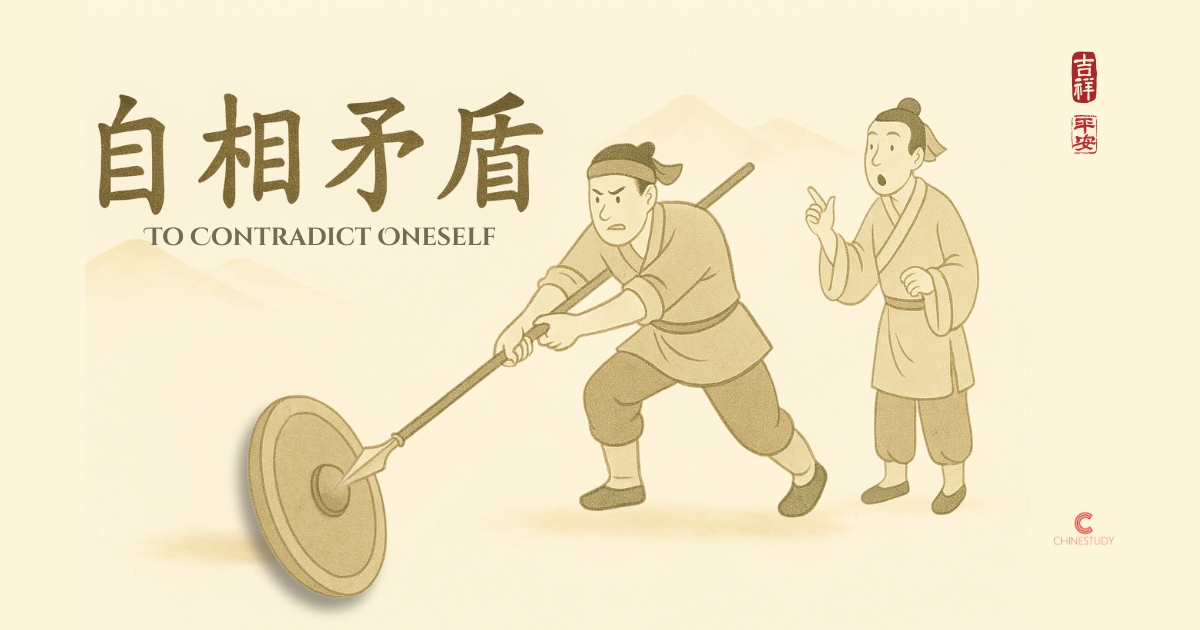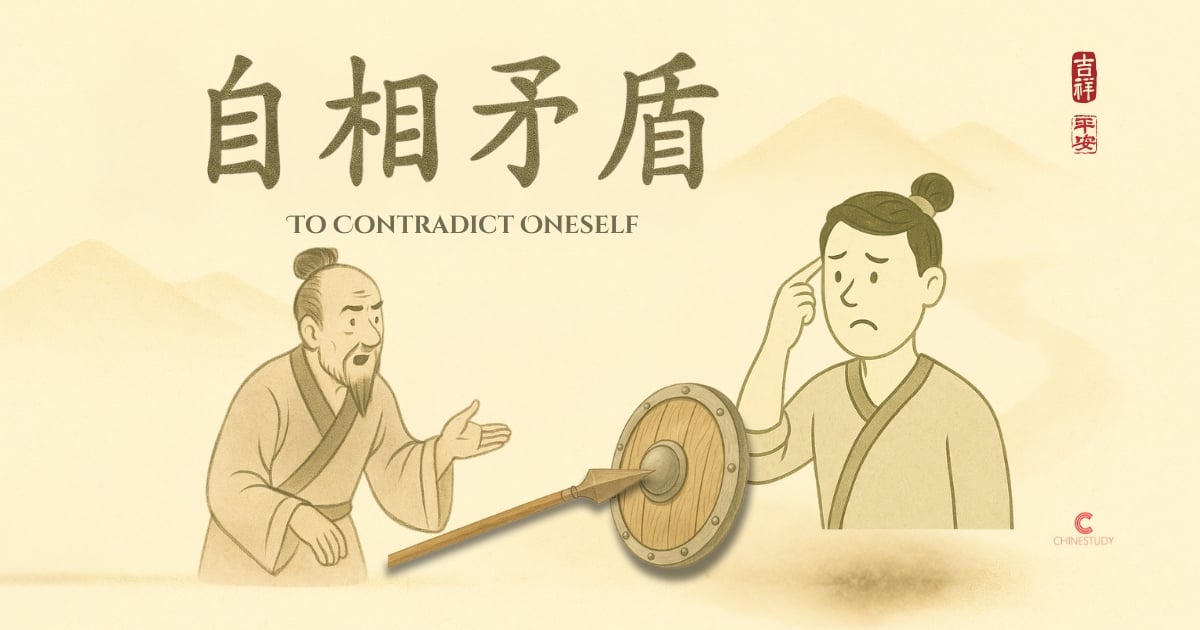🛡️ 自相矛盾 zì xiāng máo dùn – To Contradict Oneself

🔍 What It Means
自相矛盾 (zì xiāng máo dùn) literally means “to use one’s own spear against one’s own shield.”
Word-for-word:
- 自 (zì) – self
- 相 (xiāng) – each other / mutually
- 矛 (máo) – spear
- 盾 (dùn) – shield
It describes a situation where someone’s words or actions contradict each other.
In English, we might say:
- 🔁 “That doesn’t add up.”
- 🔁 “You’re contradicting yourself.”
🏺 Where It Comes From
This idiom comes from an ancient Chinese story:
A man was selling weapons in the market.
He proudly said, “My spear is so sharp, it can pierce any shield!”
Then he added, “And my shield is so strong, nothing can break through it!”
Someone in the crowd asked,
“What happens if you use your spear to attack your shield?” 🤔
The man had no answer.
From then on, 自相矛盾 became a phrase to describe things that can’t both be true at the same time.
💬 How to Use It
Use 自相矛盾 when someone says or does two things that clearly don’t match or cancel each other out.
- ❌ It’s negative, but not extremely harsh.
- 🗣 Often used to point out inconsistency in opinions or behavior.
🎯 Real Examples
1. 他说这个产品很好,可是又说从来不用,真是自相矛盾。
- Tā shuō zhège chǎnpǐn hěn hǎo, kěshì yòu shuō cónglái bú yòng, zhēn shì zìxiāngmáodùn.
- 👉🏼 He said the product is great, but also said he never uses it. That’s totally self-contradictory.
2. 你刚才说你不喜欢甜食,现在却在吃蛋糕,有点自相矛盾哦!
- Nǐ gāngcái shuō nǐ bù xǐhuan tiánshí, xiànzài què zài chī dàngāo, yǒudiǎn zìxiāngmáodùn ó!
- 👉🏼 You just said you don’t like sweets, but now you’re eating cake. Isn’t that a bit contradictory?
⚠️ Common Mistakes (Watch Out!)
- ❌ Mistake: Thinking this idiom means someone is lying.
- ✅ Correct: It means their statements or actions don’t logically match, even if they’re not lying on purpose.
💡 Memory Tip

Imagine someone trying to use their own spear to destroy their own shield.
💥 That’s what a contradiction looks like!
It’s a picture of two things that just can’t work together.
✍🏻 Interactive Practice
Translate this sentence into English:
- 他说自己没时间,可是却每天玩游戏,这不是自相矛盾吗?
Answer:
- He says he has no time, but plays games every day. Isn’t that a contradiction?
🌟 Final Thoughts
自相矛盾 is a powerful idiom that helps you notice when things don’t make sense together.
Whether in language, logic, or daily life — 👀 Spotting contradictions can help you think more clearly.
👉 Stay tuned for the next idiom in this series!
Thank you for subscribing!
Have a great day!